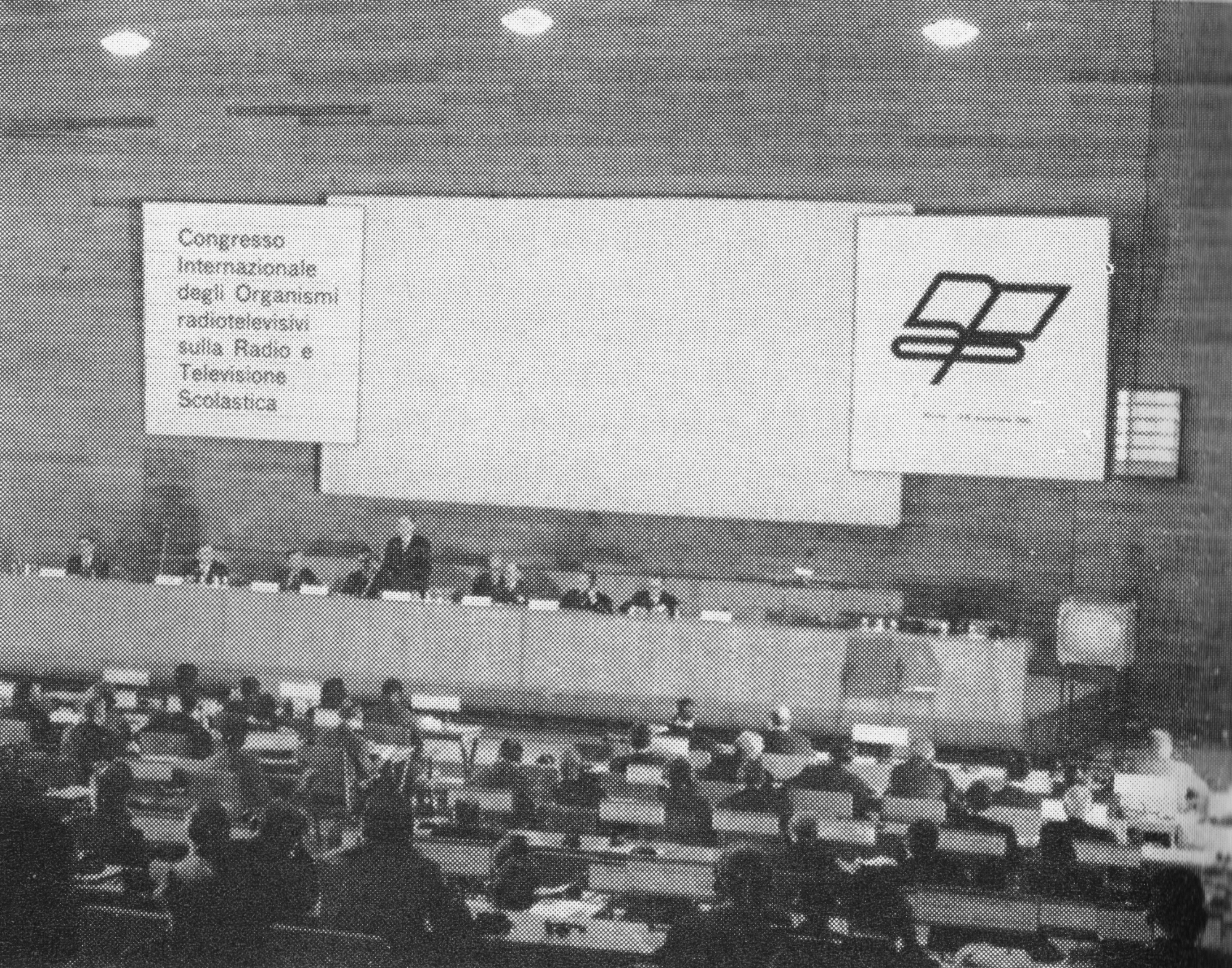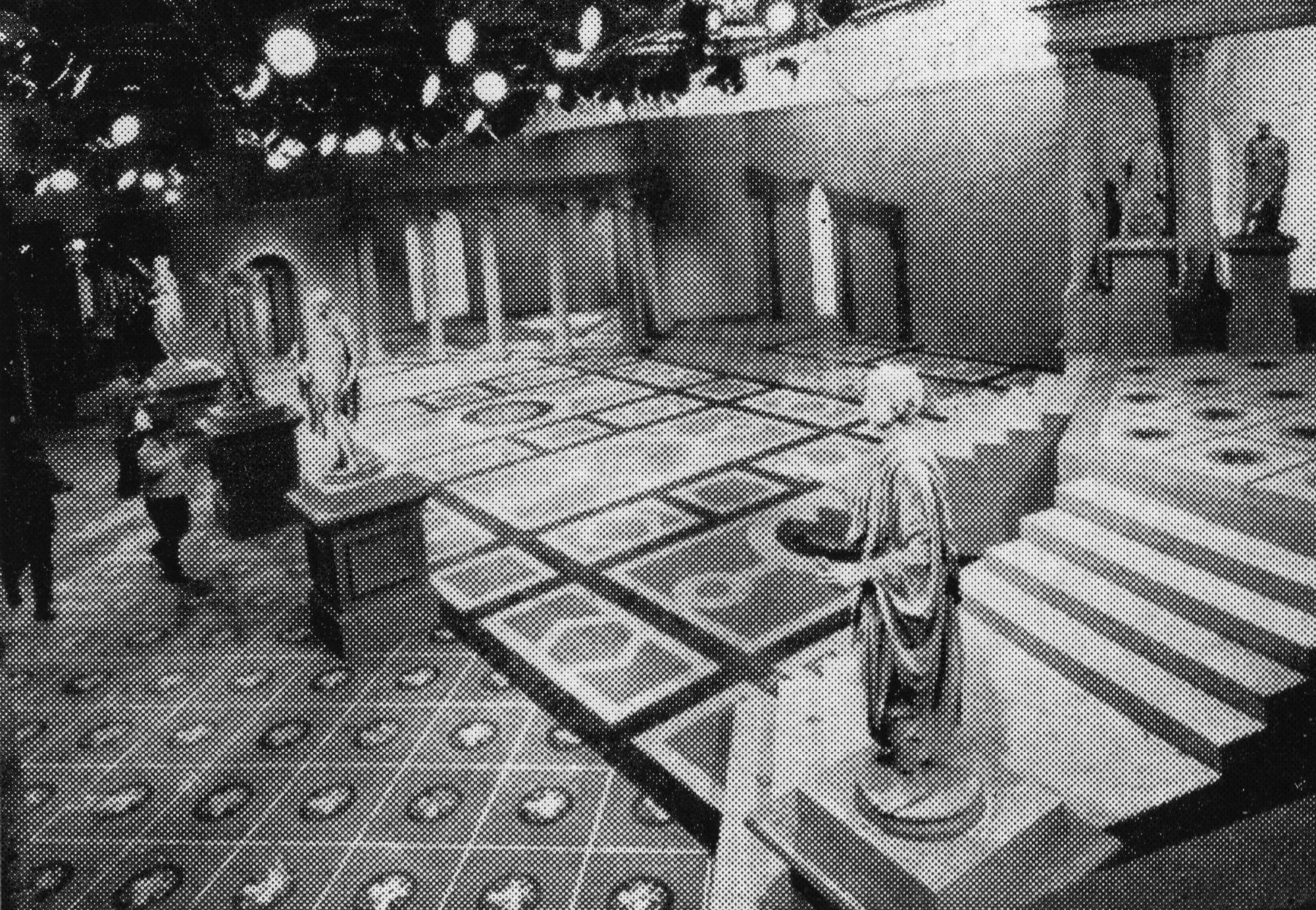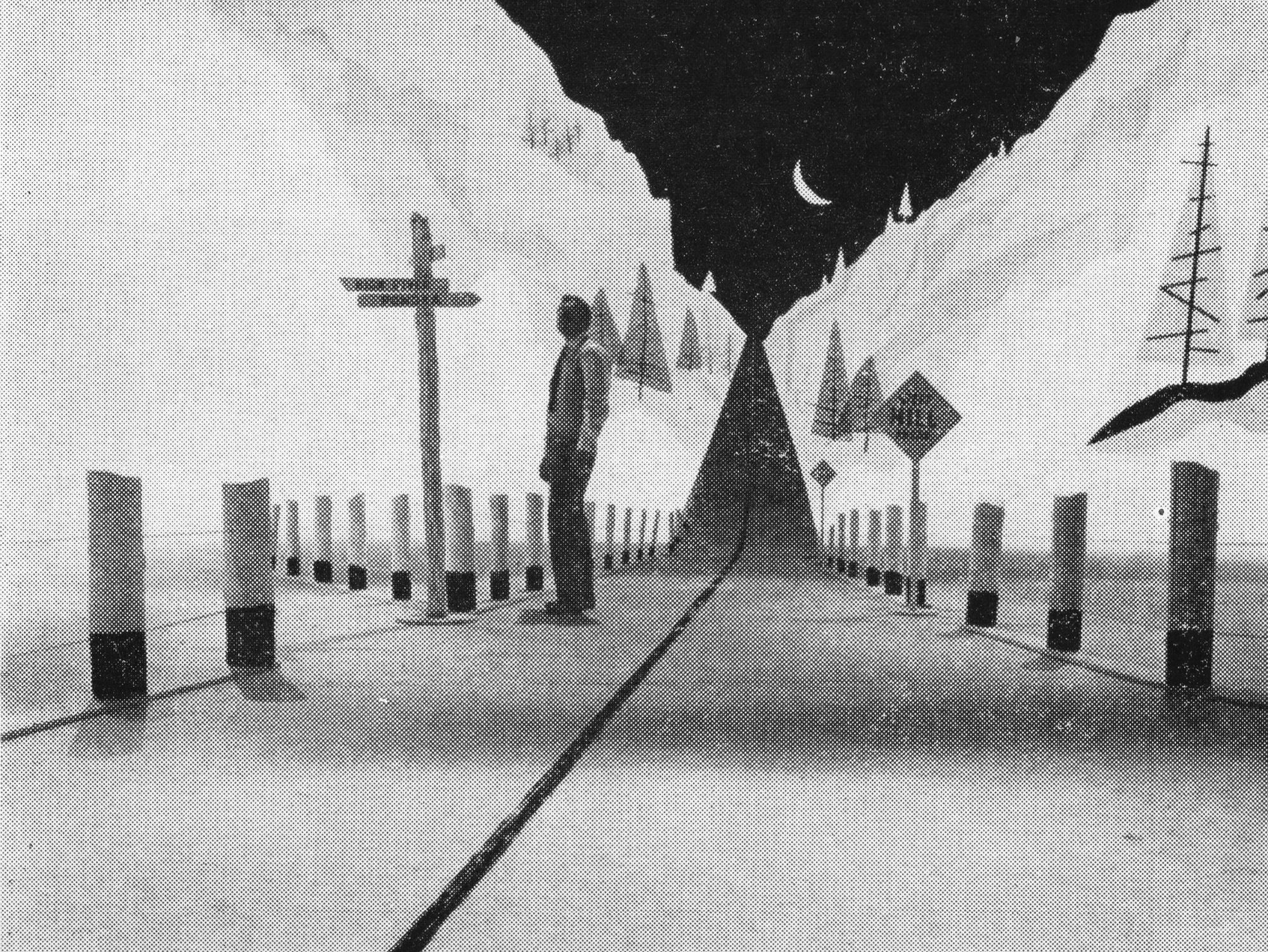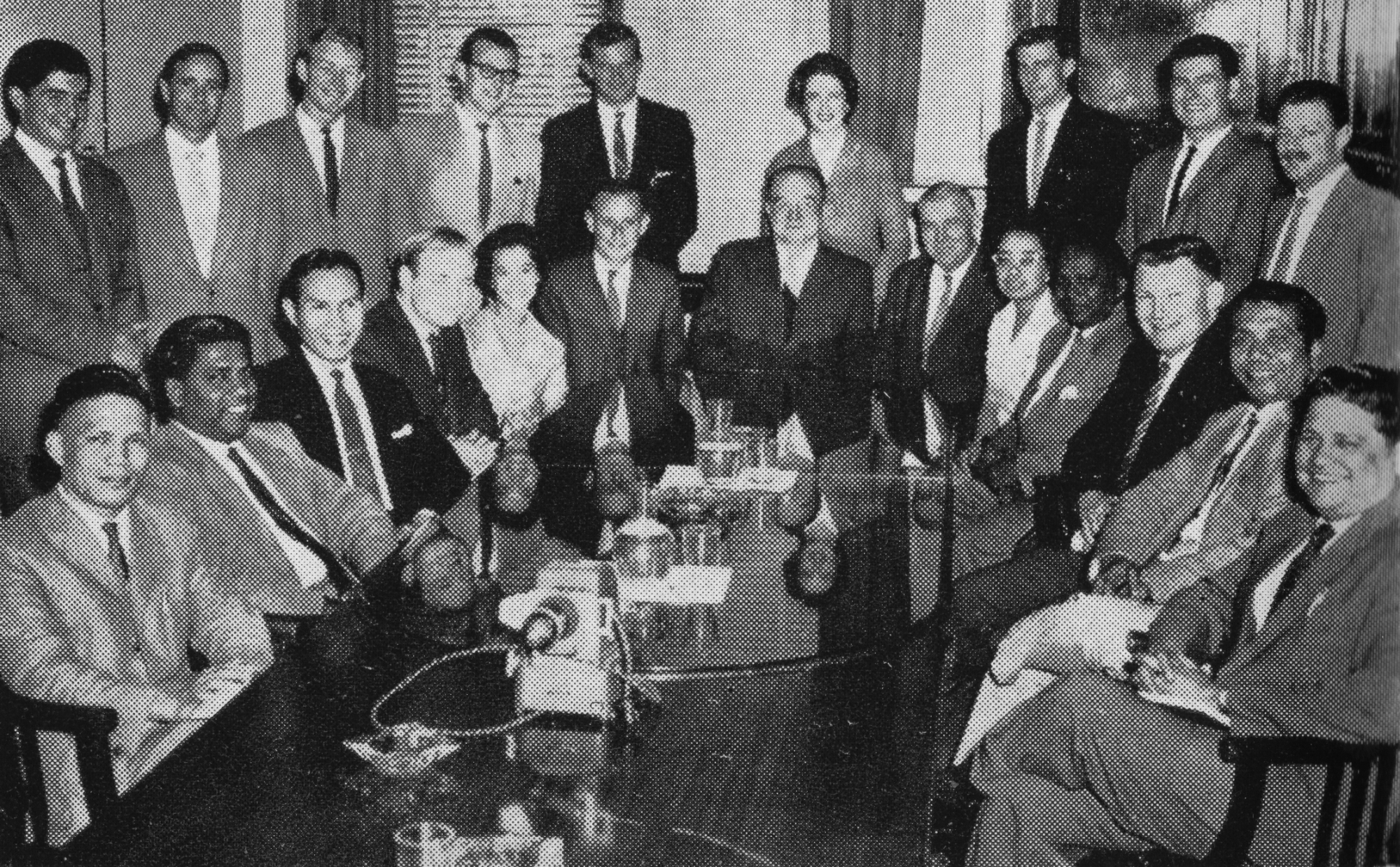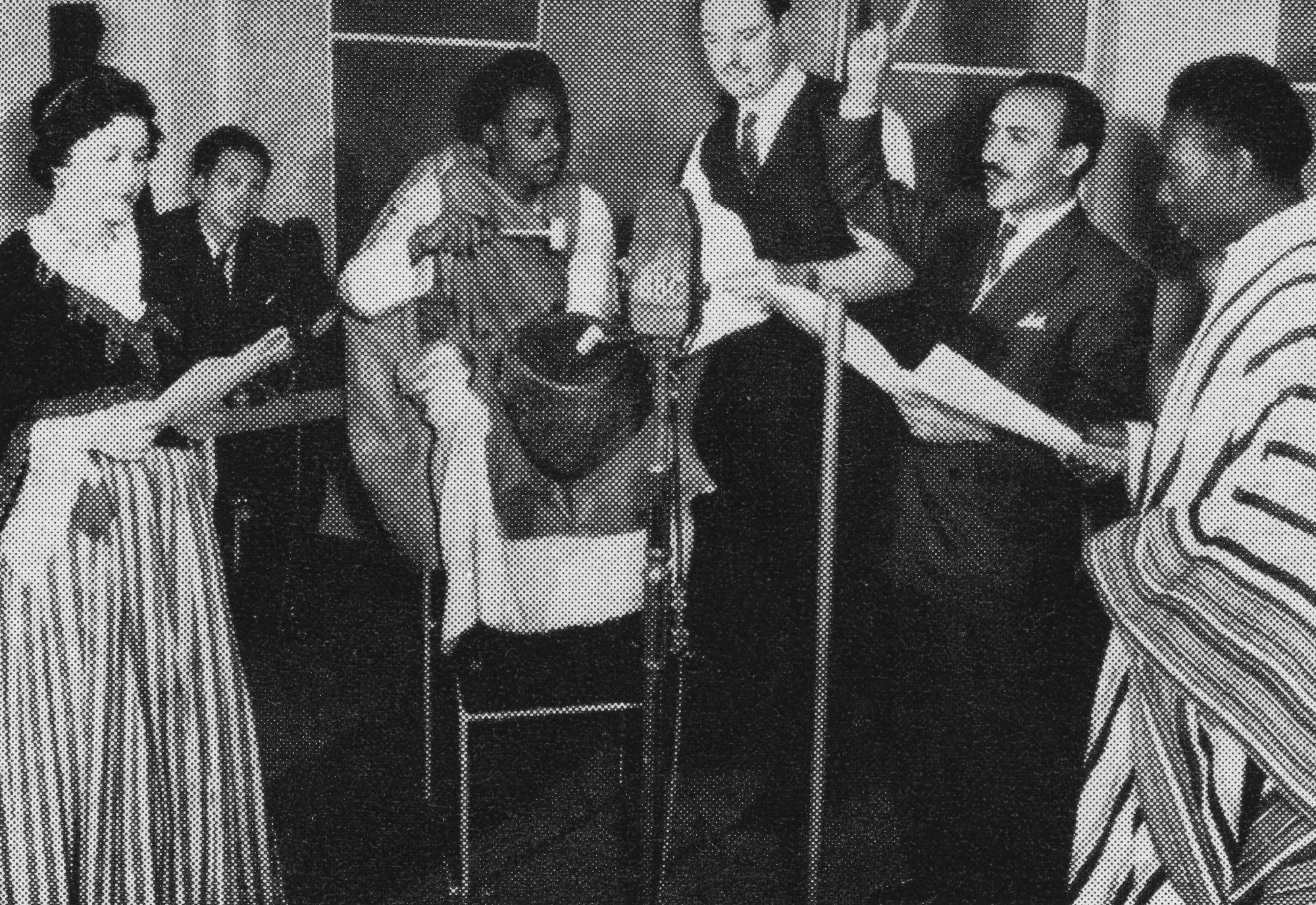Activities in the
Programme field
Work of the Programme Committee
When the E.B.U. was founded at Torquay on 12th February 1950, the Legal and Technical Committees were set up immediately by decision of the General Assembly. Some three years later, on 10th November 1953 to be precise, the Programme Committee was created at the proposal of the Administrative Council. This Committee whose task has grown increasingly important, especially since the development of television, meets twice a year, in the spring and autumn, and has as members the television programme directors of the Union’s member organisations or their delegates. This permanent body’s province is the study of all the general aspects of the field which has been assigned to it and its terms of reference are, more particularly, to deal with the problems raised by international exchanges of programmes and first and foremost those relating to television. Under this heading may be included direct exchanges and exchanges on film, news exchanges, and special programmes.
The main work of the Programme Committee consists in preparing international programmes, studying the problems posed by staff training and making provision for international exchanges in many fields, but the Committee does not for that reason ignore the problems arising from the repercussions of such work on the legal and technical spheres.
That is why the Programme Committee works, whenever necessary, in close cooperation with the Technical and Legal Committees.
Activities of the Study Groups
Each Committee is entitled to set up, where necessary, study groups composed of experts in a particular field. The Chairman of a study group, whose competence extends only to the question which has been referred to it for study, is always a director who is a member of the Committee, so that liaison with the Committee can be maintained and the work conducted in a realistic, useful and efficient manner. The secretariat of these bodies is provided, in the interests of coordination, by the Administrative Office which plays an active and practical part in the work of the Programme Committee’s study groups.
The international television relays over the Eurovision Network, the Daily News Exchange Scheme, the organisation of special international programmes, such as the agricultural and youth magazines, and television for schools, are among the principal activities which the E.B.U. Programme Committee has entrusted to its Study Groups and which we shall describe briefly.
Planning Group
The Planning Group is mainly responsible for the organisation and coordination of the majority of programme exchanges of important topical events, known as Eurovision. This function is specified in the description of Eurovision operations later.
Among the important tasks that fall to this Group are the Grand Prix of the Eurovision Song Contest, the implementation of the project entitled “The Largest Theatre in the World” and relays of major sporting events such as the world football, ice hockey, athletics and gymnastics championships, or the summer and winter Olympic Games, among other things.
The latest statistics issued at the end of 1961 indicate that 2275 Eurovision programmes for a total of 2366 hours had given rise to 12,733 relays.
News Exchanges
The News Exchange Study Group deals with the daily exchange of news which is distributed in closed circuit over the Eurovision Network. This news is recorded by all the participating services for use in their television newsreels the same evening. In the last few months these exchanges have expanded considerably and have helped to speed up the supply of information and make a valuable contribution to television newsreels.
Within the framework of the programme exchanges, the E.B.U. decided to organise two series of large-scale special international magazine programmes, which the diversity of the material contributed by the participants has rendered extremely interesting. Two of the Study Groups of the Programme Committee have been responsible for such series: the Agricultural Programme Study Group and the Children’s Programme Study Group.
View of the main hall of the Palazzo dei Congressi, Rome, where the International Conference of Radio and Television Organisations on School Broadcasting was held in December 1961. This conference was initiated by the E.B.U. and organised by the Radiotelevisione Italiana.
Agricultural Programme
The production of an international agricultural magazine programme comes within the province of the Agricultural Programme Study Group. Each organisation supplies an average of six subjects per year for agricultural films, and uses between thirty and fifty subjects of foreign origin. The Group is also studying a joint production on “European cattle”, and it is trying to devise a system of mutual information relating to available material, plans for outside broadcasts etc.
Children's Programmes
The Children’s Programme Study Group is responsible for producing another international magazine, for children in this case. The Children’s International Magazine has been in existence for several years and the experts in this Group endeavour in the course of their meetings to find ways of developing and improving it. Other types of exchanges are also given careful study; these include exchanges of documentary films and film series, or live and deferred transmissions.
Educational Television
Several questions are studied by the Educational Television Study Group whose main objectives it would be interesting to list: to provide teaching circles with fuller information on the possibilities of school television; to set up and circulate a card index keeping member organisations informed of material available for exchange; to study coproduction projects; to promote study tours for specialised production staff, particularly those responsible for animation and visualisation; to organise in-service training courses for producers of school television; and finally to produce the first international series of school programmes, on economic geography.
• •
Apart from its activities directly related to the programme material, the E.B.U. has concerned itself particularly with the problem of the training of programme staff and has organised many schemes having that purpose in view. Moreover, the E.B.U. has collaborated directly in the work of the more important international bodies and participates in the organisation of several international artistic festivals.
Staff training problems
A product of the Educational Television Study Group was the training course, entitled “From Idea to Image”, intended for directors and producers with a certain general experience of television, which was held in Basle from 7th to 14th February 1962. This school-television course, organised by the 🇨🇭 S.S.R., met with great success. There were more than 31 participants and 19 active and associate Members of the E.B.U. were represented. Fifteen teachers contributed to a review of the many educational problems connected with school television. Thirty-three programmes were viewed and discussed.
Mention should also be made in this field of the course organised by the 🇬🇧 B.B.C. for television designers. This took the form of a conference on television scenic design held in London from 7th to 15th May 1962 and was acknowledged to be a great success.
The same can be said of the 3rd international course for television producers on “the broadcast drama” which was organised by the 🇫🇷 R.T.F. from 28th May to 16th June 1962 in Paris and whose lectures were of tremendous interest to the many participants.
Nor should we forget the very important part played in the international field by the International Conference of Radio and Television Organisations on School Broadcasting organised by the 🇮🇹 R.A.I. in Rome from 3rd to 9th December 1961 and sponsored by the E.B.U.. Delegates from 64 countries were thus given the opportunity to take stock of past experience and consider future plans in the field of school broadcasting.
▼ Several issues of the E.B.U. Review – Part B have been devoted to television scenic design. These two examples were among the many described.
Set for a television variety programme entitled Music ’60, presented by the Canadian Broadcasting Corporation.
Co-operation with other International Organisations
Another of the E.B.U.’s activities at the international level is its cooperation with a large number of important international organisations including the 🇺🇳 United Nations, Unesco, the World Health Organisation, the International Labour Organisation, the International Committee of the Red Cross, the Food and Agriculture Organisation, the International Film and Television Council and the International Union for Child Welfare. In this field, the E.B.U. originates and encourages a wide variety of activities which have a direct bearing on the international scene, often in connection with the anniversaries of these institutions.
The same spirit of cooperation prompted the E.B.U. to attend the important meeting on educational broadcasting in tropical Africa organised by Unesco in Moshi (Tanganyika) in September 1961. The Union was also represented at the Unesco meeting in Paris in January and February 1962 on the development of information media in Africa.
Rural broadcast training course for Asians enabling students to study the work of the Rural Department of the Australian Broadcasting Commission. This is one example of the help that E.B.U. Members are giving to developing nations.
International Festivals
In the field of major international meetings, the E.B.U. has taken important measures to avoid a chaotic proliferation of international competitions and to prevent these competitions and festivals from overlapping and duplicating each other. This has allowed the Union to adopt a favourable position with regard to competitions and festivals whose regulations have been submitted to it in good time and have received its approval.
The names and main characteristics of these international radio and television competitions are as follows:
The Eurovision Grand Prix of Television Films, Cannes, reserved to films specially produced and devised for television by independent producers; the Golden Rose of Montreux Contest, for television variety broadcasts; the International Television Festival, Monte Carlo; the Salzburg Opera Prize.
Mention should also be made of the traditional Prix Italia, awarded to the best dramatic, musical and documentary works, which is organised independently and is financed by broadcasting organisations that are for the most part members of the E.B.U.
Special course in broadcasting for visitors from overseas, organised by the B.B.C. in the spring of 1957. Visitors from Cyprus, Hong-Kong, Uganda, Aden and Sierra Leone are seen here rehearsing for a feature programme exercise.

